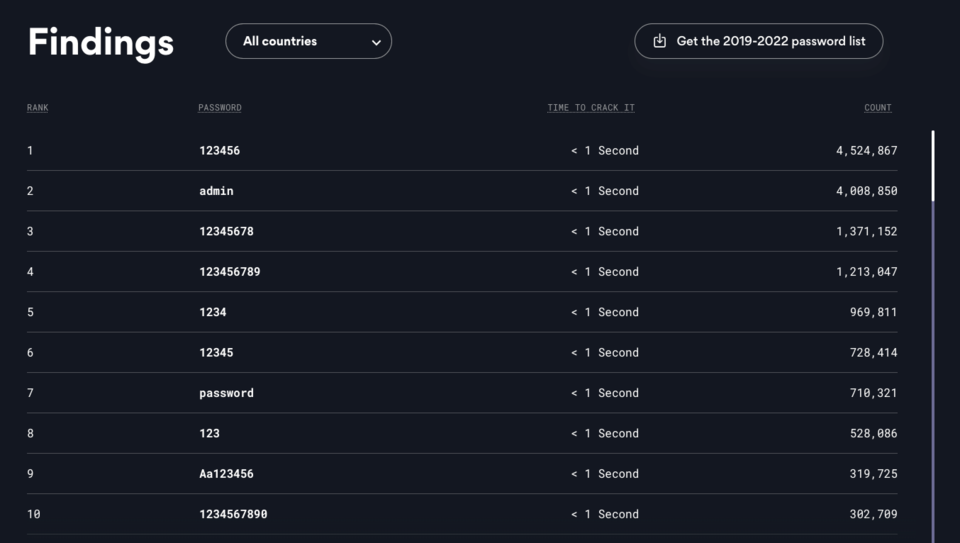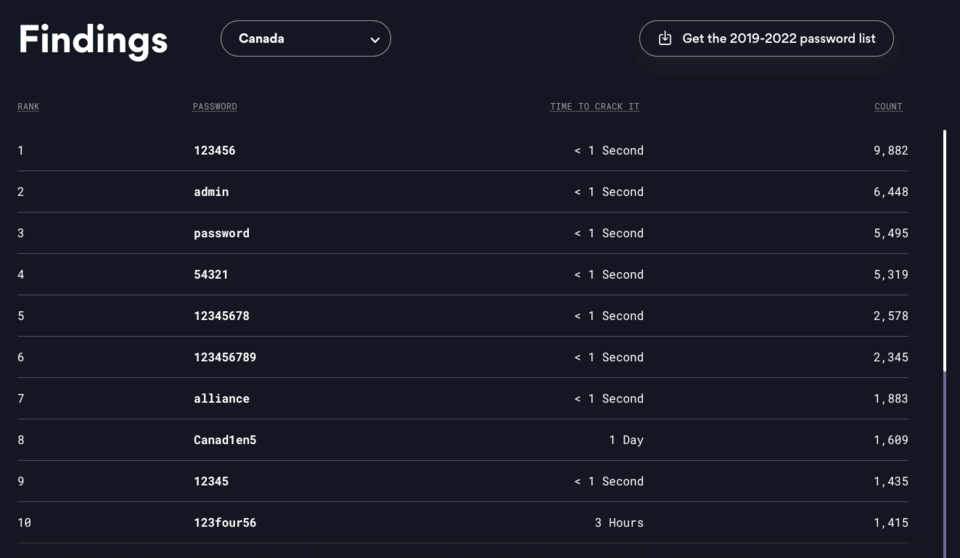When it comes to picking a password, many find it tedious and opt for choosing something simple that they won't forget.
Well, the latest report by NordPass sheds light on the perilous consequences of using weak passwords in safeguarding our digital lives. In collaboration with independent researchers, NordPass delved into the realm of cybersecurity to uncover the 200 most commonly used passwords of 2023.
The importance of robust passwords cannot be overstated when it comes to fortifying our emails, online banking, and streaming platforms against the relentless pursuits of hackers.
However, the report reveals an alarming reality: 17 out of the world’s top 20 most common passwords can be cracked in less than a second. Consider this before resorting to easily guessable options like "123456" or the scarcely imaginative "password" to protect your online accounts.
🔐 Unveiling the Champion of the most common passwords in 2023 🏆
— NordPass (@NordPass) November 15, 2023
Hint: What do you get when you combine the first digits in sequential order? The answer lies in the most common password of the year.
Find out who topped the leaderboard! But please, don’t get inspired.💡
A startling revelation from the report highlights that a staggering 86% of cyberattacks exploit stolen credentials, with online accounts, emails, and passwords accounting for nearly 20% of the commodities peddled on the dark web.
For the safety of your sensitive data, these are the global top 10 most prevalent passwords of 2023 and the estimated time to crack each one.

Now, focusing on Canada, the report exposes the prevalent use of "123456" as the top password for 2023, closely trailed by "admin," followed by "password" securing the third spot on the list.
To fortify your digital fortress, here are Canada's top 10 most commonly used passwords of 2023 and the vulnerability each presents in terms of cracking time.

Tips to bolster your online security:
- Frequent Password Changes: Regularly update your passwords.
- Complexity Matters: Opt for passwords at least 20 characters long, incorporating numbers, uppercase and lowercase letters, and special symbols.
- Avoid Common Information: Refrain from utilizing easily accessible information like birthdays, names, or common words.
- Unique Passwords: Never reuse the same password across multiple platforms.
- Embrace Passkeys: Transition to passkeys that enable fingerprint, face scan, or PIN-based access to enhance security.
As cyber threats continue to evolve, staying ahead in the digital security game becomes imperative. Adopting robust password practices and leveraging advanced security measures can be the shield that safeguards your valuable digital identity.




